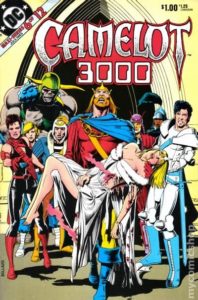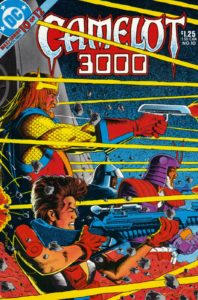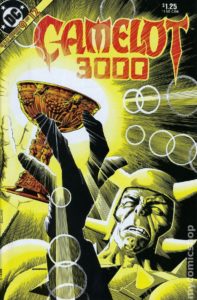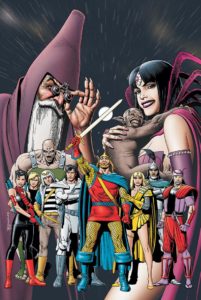I have become a big fan of the three men who combined to write all but one song here, and produce this 1967 LP release – “Bound To Happen”. Terry Cashman, Gene Pistilli and Tommy West met while working for ABC Records. Cashman and Pistilli combined to write “Sunday Will Never Be The Same” that appears on this album, as well as being a successful single for Spanky and Our Gang, reaching #9 on the Hot 100 in the summer of 1967.
The three worked together and wrote 10 songs for the album and included one song written by Jerry Reed “Up ‘N’ Down (Baby What You Want Me To Do)” .
A little introduction to each man:
Terry Cashman is probably best known for his “Talkin’ Baseball” single from 1981 that turned into a series of songs highlighting the baseball history and famous names of each club. he was once in the Detroit Tiger minor leagues and made his first appearance on American Bandstand as a member of the do-wop group, The Cheverons, in 1960.
Gene Pistilli would move on to the original formation of The Manhattan Transfer and co-write 5 of the 10 songs on their first LP – Jukin’. The album was not a commercial sucess and Gene moved on. Pistilli reappeared as a solo act, singing in a fluid baritone and playing guitar, he blended western swing with a mid-swing era singing style. Billed as ‘the Hoboken Saddletramp’, he built a dedicated if localized following. He also wrote Randy Travis’ #1 song “Too Gone Too Long”. Gene passed away December 26th, 2017.
Tommy West was born Thomas Picardo Jr., he was part of The Criterions that charted with”I Remain Truly Yours” in 1963. While at Villanova, he became friends with Jim Croce, and would layer be instrumental, along with Terry Cashman, in getting Jim’s career off the ground. They produced all of Jim’s music until his untimely death. West also sang back-up vocals for Frank Sinatra, Perry Como and Sammy Davis Jr. Tommy and Terry also wrote 8 songs for The Partridge Family. After his successful songwriting time with Terry, Tommy moved to country music and produced 3 country #1 songs including Holly Dunn’s “Love Somebody Like Me”
“But For Love” is probably my favorite song on this album. It would surface twice on the charts. Jerry Naylor reached #69 on the Hot 100 and Eddy Arnold would reach #19 on the country charts in 1969.
Song List:
1 – bound to happen
2 – spring has a tear in her eye
3 – red is red
4 – i`d stumble & all
5 – a song that never comes
6 – sunday will never be the same
7 – port authority terminal
8 – but for love
9 – up n` down [ baby what you want me to do ]
10 – you can write a song
11 – the awakening
12 – bound to happen – reprise
Credits
- Arranged By, Conductor – Joe Renzetti
- Bass – Joe Macho
- Design – Byron Goto, Henry Epstein
- Drums – Bobby Gregg
- Flute – Artie Kaplan
- Guitar – Al Gorgoni, Hugh McCracken, Sal Detroia*
- Liner Notes – Bill Grogan*
- Photography By – David Hoff
- Piano – T.P. West*
- Written-By, Producer – Cashman, Pistilli & West
All in all, a pleasing to the ear album that never got it’s due. I’ll close with one more cut – “A Song That Never Comes”. If you are interested in more Cashman, Pistilli & West, check out my podcast available here:
https://www.podomatic.com/podcasts/rearview/episodes/2016-02-11T08_31_24-08_00

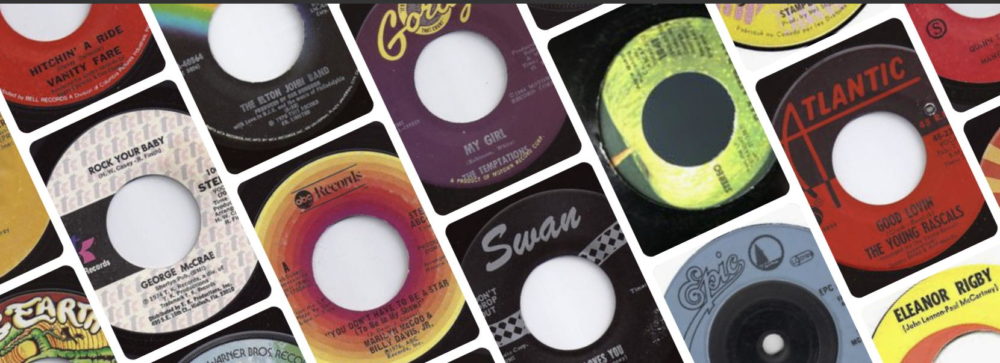
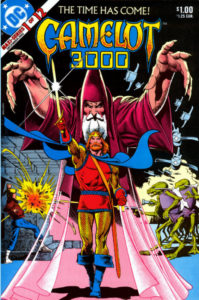
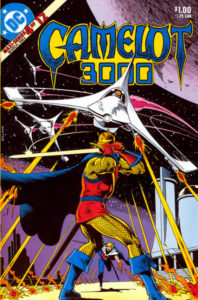 The first DC maxi-series printed on Baxter paper was Camelot 3000, a 12 issue series written by Mike W. Barr (the creator and writer for the original Batman & The Outsiders series and contributor to many DC and Marvel comic series) and penciled by Brian Bolland. Bolland was an English artist best known for his work on Judge Dredd. Barr based his story on the reincarnation of King Arthur and his cast of characters, pulled into the future to battle a foe summoned up by Morgan Le Faye.
The first DC maxi-series printed on Baxter paper was Camelot 3000, a 12 issue series written by Mike W. Barr (the creator and writer for the original Batman & The Outsiders series and contributor to many DC and Marvel comic series) and penciled by Brian Bolland. Bolland was an English artist best known for his work on Judge Dredd. Barr based his story on the reincarnation of King Arthur and his cast of characters, pulled into the future to battle a foe summoned up by Morgan Le Faye.